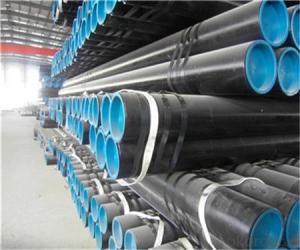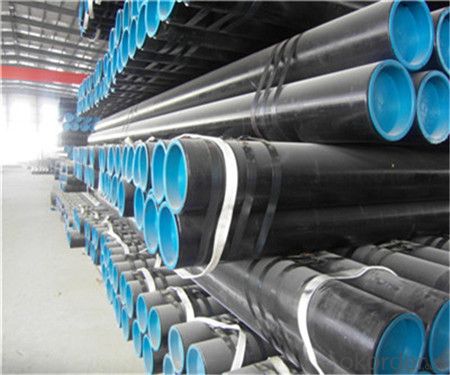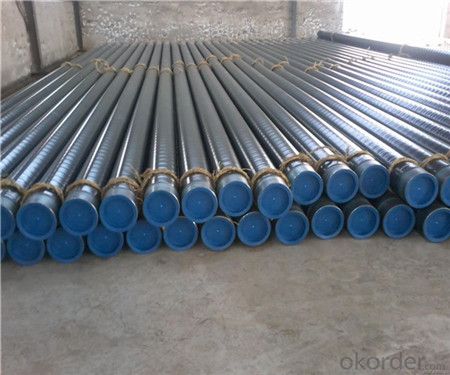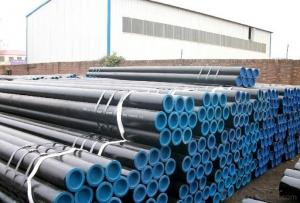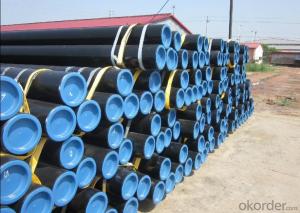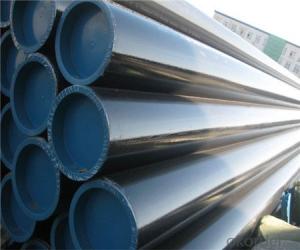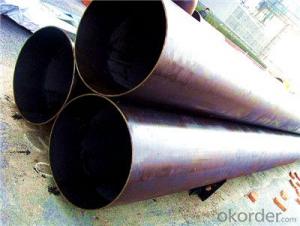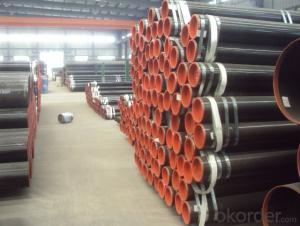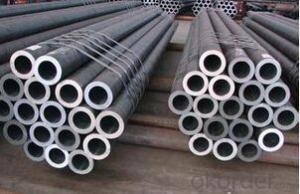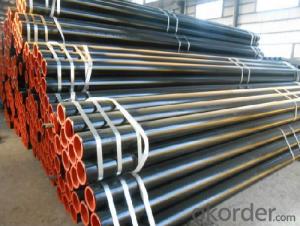China Seamless Steel Pipe/Tube L & M & H Boiler Tube GB5310 Factory
- Loading Port:
- Tianjin
- Payment Terms:
- TT OR LC
- Min Order Qty:
- 20 m.t.
- Supply Capability:
- 12000 m.t./month
OKorder Service Pledge
OKorder Financial Service
You Might Also Like
Product Description:
▲ Line pipe
▲ Tubing and casing
▲ L & M & H boiler tube
▲ Gas cylinder tube & pipe
▲ Mechanical & Structural pipe
▲ Ship-building tube & pipe
▲ Automobile tube & pipe
L & M & H BOILER TUBE
Standard: GB5310: Seamless Steel Tubes And Pipes for High Pressure Boiler
● Application: For manufacture heating-pipelines, containers, coal-saving devices, super heaters and reheaters
of high pressure boilers(P>9.8Mpa,450℃
after consulting with customers)
2、Main Features of the Seamless Pipe :
• High manufacturing accuracy
• The higher strength
• The small inertia resistance
• Strong heat dissipation ability
• Good visual effect
• Satisfy price
3、Seamless Pipe ASTM DIN1829 Specification:
Standard | GB, DIN, ASTM ASTM A106-2006, ASTM A53-2007 |
Grade | 10#-45#, 16Mn 10#, 20#, 45#, 16Mn |
Thickness | 8 - 33 mm |
Section Shape | Round |
Outer Diameter | 133 - 219 mm |
Place of Origin | Shandong, China (Mainland) |
Secondary Or Not | Non-secondary |
Application | Hydraulic Pipe |
Technique | Cold Drawn |
Certification | API |
Surface Treatment | factory state or painted black |
Special Pipe | API Pipe |
Alloy Or Not | Non-alloy |
Length | 5-12M |
Outer Diameter | 21.3-610mm |
Grade | 20#, 45#, Q345, API J55, API K55, API L80, API N80, API P110, A53B |
Standard | ASME, ASTM |
1) Material:20#(ASTM A 106/A53 GRB.API5LGRB,GB),45#,16Mn,10#.
2) Specification range:OD:21.3-610mm,WT:6-70mm,length:6-12m or according to the requirement of clients.
3) Excutive standards:GB,ASME API5L.ASTM A 106/A53,Despite of the above standards,we can also supply seamless steel pipe with standard of DIN,JIS,and so on,and also develop new products according to the requirements of our clients!
4) Surface:black lacquered,varnish coating or galvanized.
5) Ends:Beveled or square cut,plastic capped,painted.
6) Packing:bundles wrapped with strong steel strip,seaworthy packing.
4、Packaging & Delivery
Packaging Details: | seaworthy package,bundles wrapped with strong steel strip |
Delivery Detail: | 15-30days after received 30%TT |
5、FAQ of Seamless Pipe ASTM DIN1829:
①How is the quality of your products?
We have many years business experience in this area, and we have professional engineer and manager team and sure we can provide you high quality production and professional service.
②How about price?
Yes, we are factory and be able to give you lowest price below market one, and we have a policy that “ for saving time and absolutely honest business attitude, we quote as lowest as possible for any customer, and discount can be given according to quantity”,if you like bargain and factory price is not low enough as you think, just don’t waste your time.Please trust the quotation we would give you, it is professional one.
③Why should you chose us?
We can give you both.Additionally, we can also offer professional products inquiry, products knowledge train(for agents), smooth goods delivery, exellent customer solution proposals.Our service formula: good quality+good price+good service=customer’s trust
SGS test is available, customer inspection before shipping is welcome, third party inspection is no problem
our advantage:
Professional teams ensure a high efficiency of your purchase
▲ Professional sales team
▲ Professional engineering and technology team
▲ Professional exportation and contract processing/management team
▲ Professional cooperators and partners
6、Seamless Pipe Images:
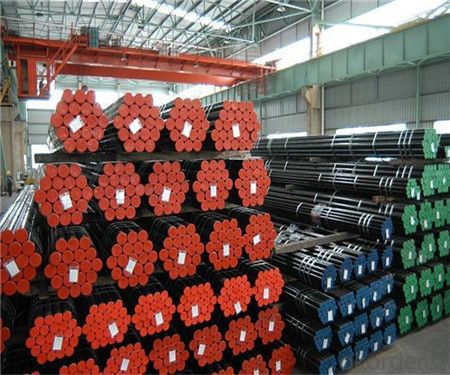
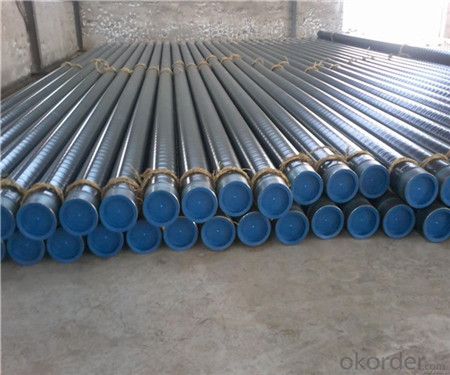
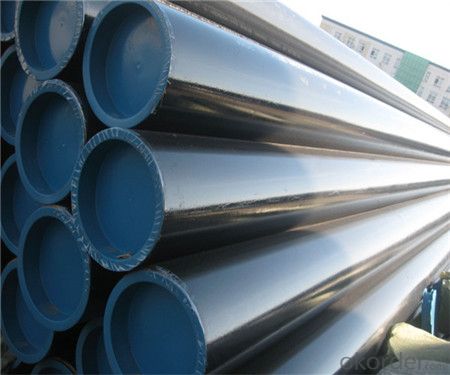
- Q: How do steel pipes handle chemical exposure?
- Steel pipes are highly resistant to chemical exposure due to their inherent corrosion-resistant properties. The steel used in pipes is often coated with protective layers or made from stainless steel, which makes them capable of withstanding the effects of various chemicals without deteriorating or reacting. This allows steel pipes to handle chemical exposure effectively and maintain their structural integrity over time.
- Q: What's the difference between straight steel pipe and seamless steel pipe?
- The welded pipe is made of rolled steel plates, and small ones are straight welded, and big ones are spiral welded. Because the welded pipe has weld, the mechanical performance of weld is poor, so its applicable range is limited, but its price is cheap. Significant difference is that there are welded pipe, seamless steel pipe is not, of course, the welded pipe treatment of good, layman do not see the difference.
- Q: How are steel pipes recycled?
- Steel pipes are recycled through a multi-step process that involves collection, sorting, cleaning, and melting. First, the used steel pipes are gathered from various sources such as construction sites or industrial facilities. Then, they are sorted based on their size, shape, and quality. Next, any contaminants or coatings are removed from the pipes through cleaning and stripping processes. Finally, the cleaned pipes are melted down in a furnace, and the molten steel is formed into new pipes or other steel products. This recycling process reduces the demand for new raw materials and helps conserve energy and resources.
- Q: Are steel pipes resistant to ultraviolet (UV) radiation?
- Steel pipes are not inherently resistant to ultraviolet (UV) radiation. UV radiation can cause degradation and discoloration of certain materials, including steel. However, the extent of the damage depends on various factors such as the type of steel, the duration and intensity of exposure to UV radiation, and the presence of protective coatings or finishes on the steel pipes. In general, uncoated steel pipes are more susceptible to UV radiation damage compared to pipes that have been treated with protective coatings or finishes. These coatings, such as epoxy or polyethylene, provide a barrier against UV radiation and help to prevent the degradation and discoloration of the steel. Therefore, it is important to consider the specific application and environment when choosing steel pipes and implementing appropriate protective measures to ensure their longevity and performance.
- Q: What are the different types of threading on steel pipes?
- There are several different types of threading commonly used on steel pipes, including tapered, parallel, and buttress threading. Tapered threading is typically used for pipes that require a tight seal, as the threads gradually narrow towards the end of the pipe. Parallel threading, on the other hand, has threads that run parallel to the pipe's axis and is often used for pipes that need to be easily assembled and disassembled. Buttress threading is a combination of tapered and parallel threading, featuring one side with a tapered thread and the other side with a straight thread. This type of threading is often used for pipes that require both a secure connection and easy installation.
- Q: How are steel pipes used in the manufacturing of sewage treatment plants?
- Steel pipes are used in the manufacturing of sewage treatment plants for various purposes, including the transportation of wastewater, the distribution of chemicals and additives, and the construction of various components such as tanks, pumps, and pipelines. Steel pipes are preferred due to their strength, durability, and resistance to corrosion, ensuring reliable and long-lasting infrastructure for the efficient operation of sewage treatment plants.
- Q: How do you calculate the maximum allowable deflection for steel pipes?
- The maximum allowable deflection for steel pipes can be calculated using various formulas and guidelines set by industry standards. Factors such as the material properties of the steel, pipe diameter, wall thickness, and the applied load are taken into consideration. These calculations typically involve using equations that relate to the pipe's moment of inertia, modulus of elasticity, and the specific loading conditions. It is recommended to consult relevant engineering codes and standards, such as ASME B31.1 or ASME B31.3, to ensure accurate calculations and safe design.
- Q: How are steel pipes protected against soil movement or settlement?
- Steel pipes can be protected against soil movement or settlement through various methods. One common method is to use protective coatings on the pipes. These coatings act as a barrier between the steel and the soil, preventing direct contact and reducing the risk of corrosion. Some commonly used coatings include epoxy, polyethylene, and zinc. Another method is to use cathodic protection. This involves the installation of sacrificial anodes along the pipeline. These anodes corrode instead of the steel pipes, protecting them from damage caused by soil movement or settlement. Furthermore, proper design and installation techniques can also help protect steel pipes against soil movement or settlement. For instance, engineers may consider factors such as soil composition, slope stability, and potential for ground movement when designing the pipeline route. Additionally, proper trenching and bedding techniques can help ensure that the pipe is adequately supported and protected against settlement. Regular inspection and maintenance are also crucial for protecting steel pipes against soil movement or settlement. Monitoring the condition of the pipeline, including the protective coatings and cathodic protection systems, can help identify any potential issues and allow for timely repairs or replacements. Overall, a combination of protective coatings, cathodic protection, proper design and installation techniques, and regular maintenance can effectively protect steel pipes against soil movement or settlement.
- Q: What are the common welding techniques used for steel pipes?
- The common welding techniques used for steel pipes include Shielded Metal Arc Welding (SMAW or stick welding), Gas Metal Arc Welding (GMAW or MIG welding), Flux-Cored Arc Welding (FCAW), and Gas Tungsten Arc Welding (GTAW or TIG welding).
- Q: How are steel pipes used in the manufacturing of power distribution systems?
- Steel pipes are commonly used in the manufacturing of power distribution systems as they provide a reliable and durable solution for transporting and protecting electrical cables. They are used to create conduits that house the cables, ensuring safe and efficient transmission of electricity throughout the system. Steel pipes also offer resistance to corrosion, fire, and extreme weather conditions, making them a suitable choice for power distribution systems.
Send your message to us
China Seamless Steel Pipe/Tube L & M & H Boiler Tube GB5310 Factory
- Loading Port:
- Tianjin
- Payment Terms:
- TT OR LC
- Min Order Qty:
- 20 m.t.
- Supply Capability:
- 12000 m.t./month
OKorder Service Pledge
OKorder Financial Service
Similar products
Hot products
Hot Searches
Related keywords
